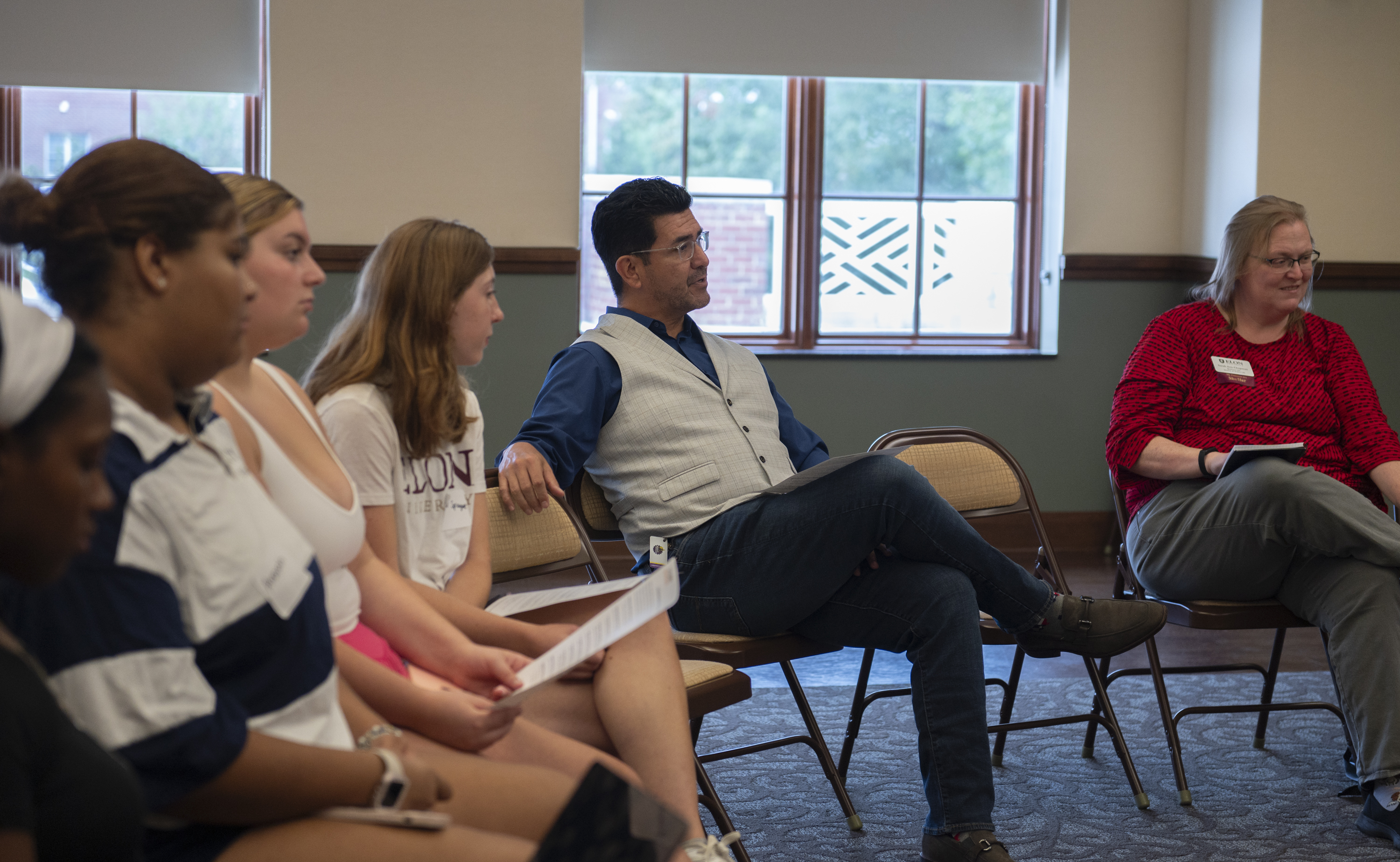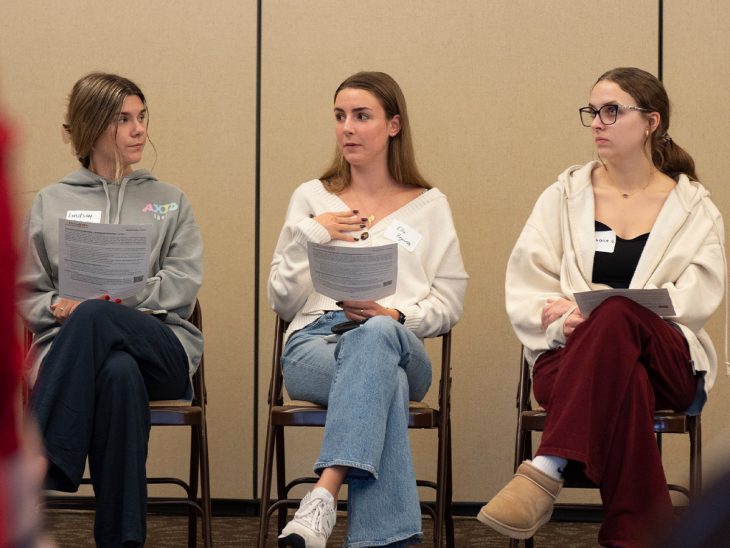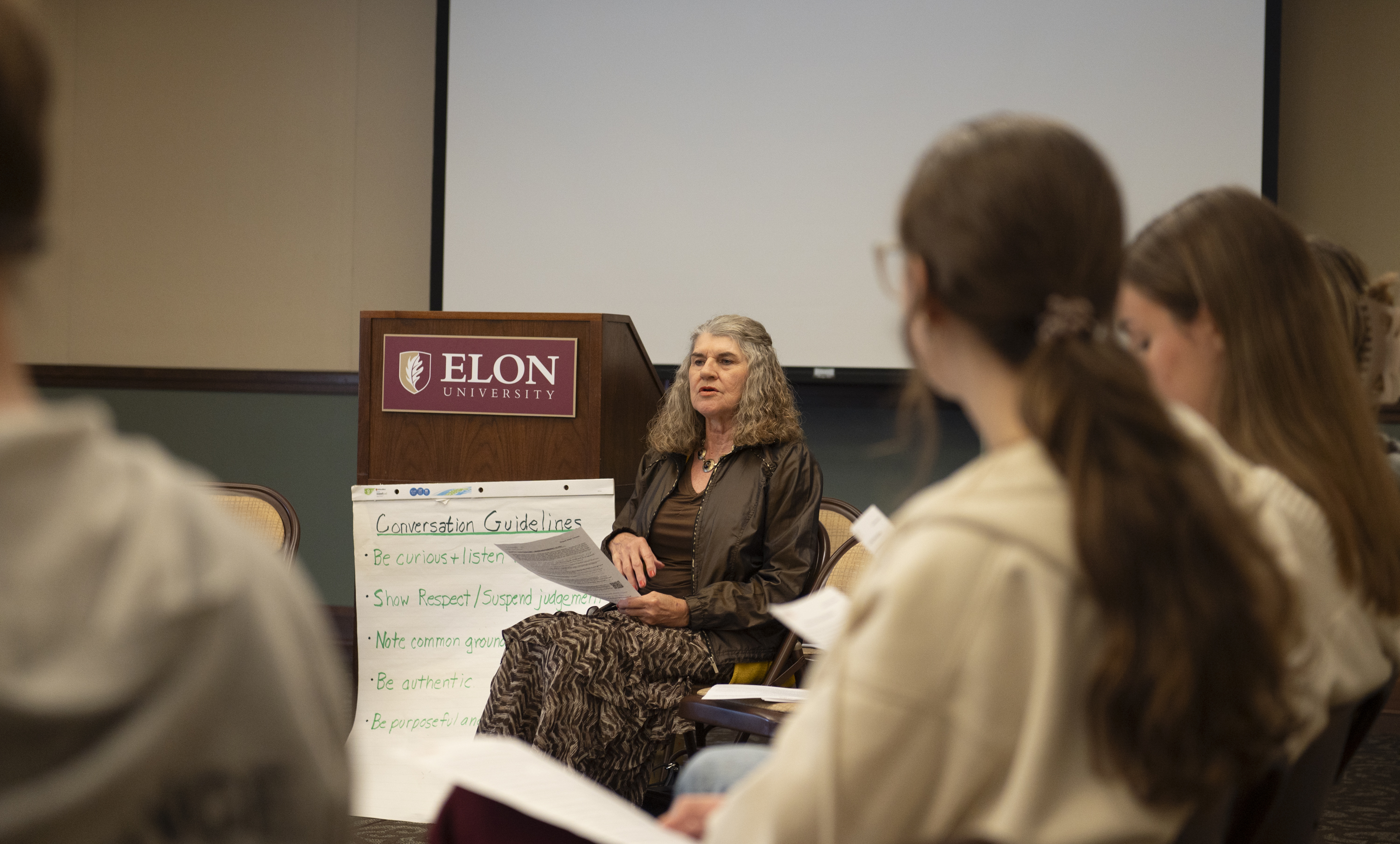As part of the Active Citizen Series, students and faculty were invited to share their election concerns and coping strategies in a supportive environment on Sept. 24 in Moseley Center.
With the 2024 election nearly a month away, Elon University students, faculty and staff gathered to have a conversation about their anxieties during the tense election season.
The event on Tuesday, Sept. 24, in the Moseley Center was part of the Active Citizen series and was hosted by the Kernodle Center for Civic Life. The Active Citizen Series is a collection of events at Elon designed to cultivate the next generation of informed leadership who help strengthen our communities and shape democracy. Elon is hosting several nonpartisan events ahead of the 2024 election.
Students were separated into smaller groups with different facilitators to have more intimate conversations. Today at Elon sat in on a group facilitated by Adjunct Assistant Professor of Peace and Conflict Studies Linda Dunn. The discussion revolved around unbiased education in politics, the importance of elections, and having more space for productive spaces that are less about disagreeing with the “other side,” but rather looking for a solution.
Waves of excitement (and nervousness)
Lindsay Bialecki ’26, Elon Votes student coordinator, mentioned that as they worked with students who felt disenfranchised, they hoped for more open and productive conversations that closed the gap between educated voters and those who aren’t as politically aware. Bialecki noted that, on average, one-fifth of students did not cast a vote in previous elections because they did not know how to vote.
“You ride those waves of excitement and nervousness working around candidates and policy issues. While you do have an impact with your vote, it’s hard when you are one person and, you are not making policy and you’re not in charge,” said Bialecki.
Assistant Professor of Journalism Israel Balderas said he has concerns for his 10-year-old daughter’s future rights as a woman and as a Latina. There was an agreement among attendees of feeling nervous or stressed about the election, specifically regarding the results and impact on their communities.
“I was a journalist before I became a teacher, and that’s what I did, I covered elections. Our generation, we screwed it up, (the students) have to clean it up and so I want to encourage them to give them the tools to vote in future elections,” said Balderas.

This discussion highlighted how some young voters might be anxious, not only because of the big decision before them but also because of the pressures coming from their peers, family and their community.
“Thanksgiving is going to be interesting,” said Skylar Cook ‘28, who noted they come from a politically divided family.
The social media ‘cesspool’
The conversation also focused on the role of social media in comforting or aggravating the political tension in the U.S. Participants recall the difficulty of finding straight facts on policies and candidates especially if the person is not swayed by either party. Social media provides a place where people are allowed to share their political views, no matter if they are offensive or attack others.
“With social media being the way it is and the candidates being on social media the way they are, I feel like it’s a dumpster fire, waiting to explode,” said Cook.
Participants also talked about their coping mechanisms in dealing with social media and the election. Sarah Ann Chapman, associate director of residence life for residential education and community development, advised to take everything you see online with a grain of salt and look for a positive distraction away from the screen.
Chapman confessed to having the “joy of missing out” with social media. Chapman says that she enjoys deleting the social media apps for the sake of her mental health and admitted that she has often blocked family members and peers over their conflicting views.
“If I block people I disagree with, I’m missing out on the opportunity to grow or change my own mind,” Chapman said.

Balderas also revealed his distaste for social media at times but uses guilty pleasures, like the TV show “Supernatural,” to distract himself.
“Social media is a cesspool, but at the same time I use a lot of good material for class discussion,” said Balderas.
To end the event, Dunn asked participants, “What was valuable about this conversation?” Bialecki shared that they collected valuable and honest feedback on how to better assist the student body.
Student participants appreciated that, despite the conversation being centered around the election, there was less talk about politics and more about the common sentiments shared amongst college students faced with a hard decision.



